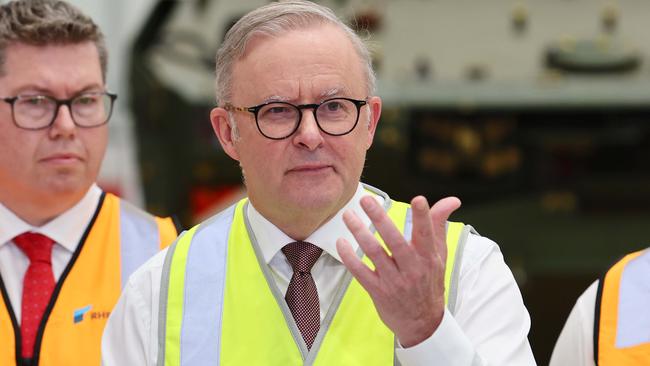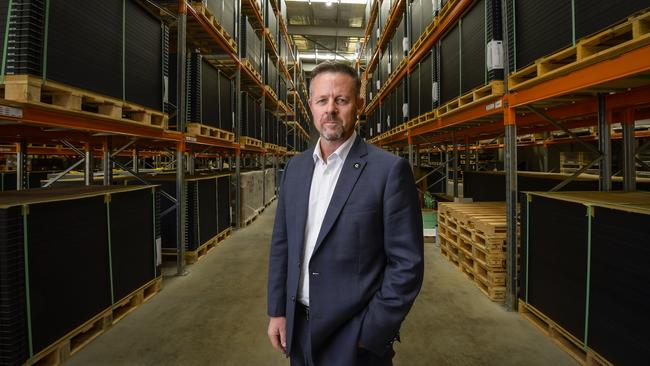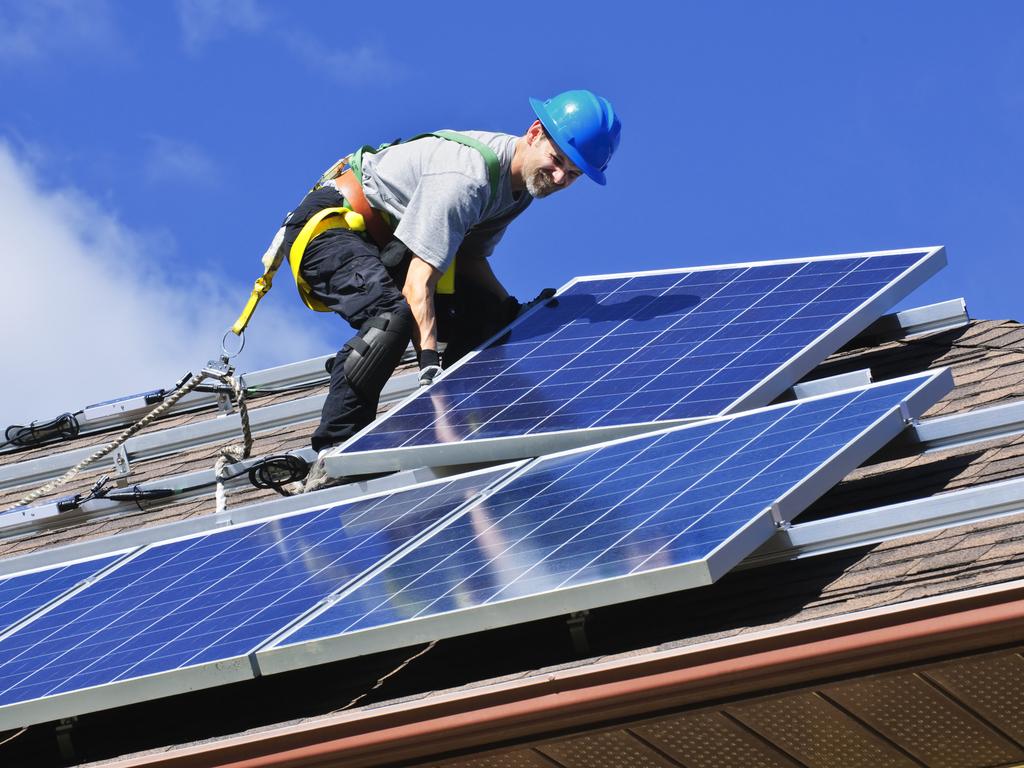$1bn solar subsidies are economically unwarranted, say economists
The federal government wants to spur manufacturing of solar panels domestically, but economists say Australia is unlikely to ever be able to compete with cheaper Chinese products.
Business
Don't miss out on the headlines from Business. Followed categories will be added to My News.
An Australian solar manufacturing industry will never be able to compete with cheaper Chinese rivals, economists and experts say, as scepticism about the merits of the federal government’s $1bn subsidy scheme grows.
Anthony Albanese last week promised $1bn to build Australia’s solar panel manufacturing capacity, but Grattan Institute energy program director Tony Wood said the spending reflected an ideological desire to bolster manufacturing rather than a policy based on economics.
“If you are subsidising an industry then you really have to be convinced that putting some money into a technology now is going to drive down the cost so that it will be competitive in a relatively achievable time frame, and even the report cited as supporting the decision finds that Australia is not competitive in any supply chain stages,” Mr Wood told The Australian.
Australia’s manufacturing industries have been declined rapidly in recent decades as the nation struggled to compete with countries with much lower labour costs, and Mr Wood said even if Australia emerged as a solar manufacturer it would do so in a market in constant flux.

“Solar manufacturing has been a commercial bloodbath over the last 10 or 15 years,” Mr Wood said.
“In 2008, the top two are now numbers nine and 10 and seven of the others have gone broke.
“Why would we want to get into that bloodbath on a commercial basis?”
The solar panel industry has been significantly up-ended by Chinese manufacturers, which now control an estimated 80 per cent of the global supply chains
Western countries are increasingly alarmed about Beijing’s capacity to leverage its position amid a rush to develop new sources of energy. If Australia was to establish a mainstream industry, technological advances would be necessary, sources said.
SunDrive, backed by Mike Cannon-Brookes, has struck an agreement with AGL to potentially establish a manufacturing facility at the retired Liddell coal power plant. The company has spruiked recent technological breakthroughs that could increase electricity generation – a technology that could catapult the company into global contention. But industry sources said the company remained some way behind and Australian households were extremely price-sensitive.

“Technological breakthroughs are probably the only way to bridge the gap to Chinese buyers and perhaps SunDrive will be able to achieve it, but pricing remains TBD and Australian households have shown themselves to prefer low-cost products,” said one industry executive.
Still, the expansion of solar manufacturing could be an economic boost for regions likely to bear the brunt of the energy transition. The use of coal is expected to decline rapidly, and the Australian Energy Market Operator expects nearly all generators to have been retired in the next 15 years. The change is set to uproot local communities, and subsidies have been offered to spur new industries in these regions.
Australia’s only domestic solar manufacturer, Tindo Solar, which supplies about 1 per cent of the domestic market, has indicated it plans to apply for funding for aggressive expansion plans.

Tindo CEO Richard Petterson said the $1bn funding would spur wider renewable development.
“This program has the potential to be a catalyst for a domestic renewables manufacturing industry, which will create thousands of jobs and ensure Australia enjoys more of the economic and societal benefits of the energy transition,” said Mr Petterson.
“Our proposed gigafactory alone will create 250 jobs and deliver $300m in economic benefits, representing an excellent return for the taxpayer from any Commonwealth support.”
Tindo plans to build a $100m 1000MV facility, with nearly 10 times the output of the company’s existing site.
More Coverage
Originally published as $1bn solar subsidies are economically unwarranted, say economists





